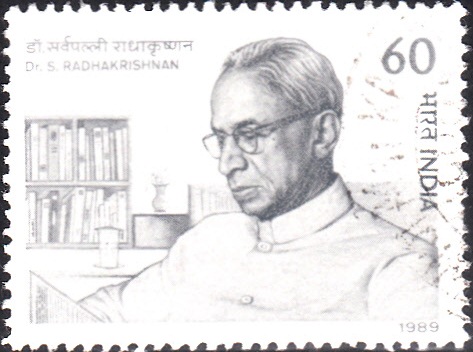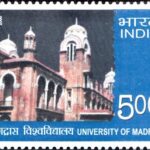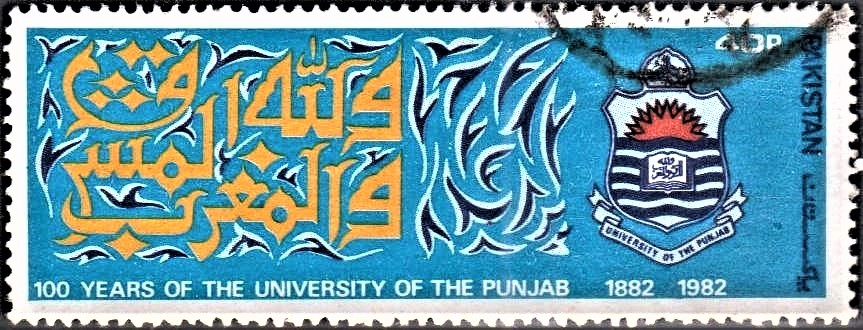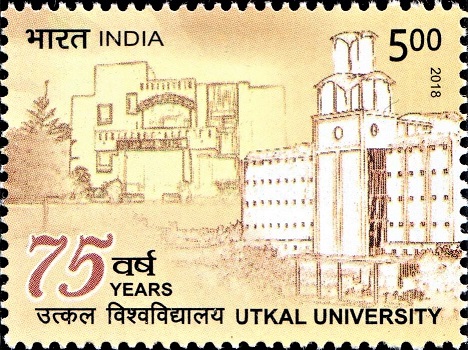
Sarvepalli Radhakrishnan 1967
A special postage stamp on Dr. Sarvepalli Radhakrishnan, 2nd President of India (1962-67) :
 Issued by India
Issued by India
Issued on Sep 5, 1967
Issued for : To honour this great son of India, the Posts and Telegraphs Department felt greatly privileged in bringing out a special stamp on the occasion of his birth anniversary on 5th September, 1967.
Photo by : Courtesy of Photo Division, Ministry of I & B, Govt. of India
Type : Stamp, Mint Condition
Colour : Plum
Denomination : 15 Paise
Overall Size : 3.91 x 2.90 cms.
Printing Size : 3.56 x 2.54 cms.
Perforation : 13 x 13
Watermark : Printed on unwatermarked paper
Number Printed : 20,00,000
Number per issue Sheet : 35
Printing Process : Photogravure
Designed and Printed at : India Security Press
Name : Sarvepalli Radhakrishnan
Born on Sep 5, 1888 at Thiruttani, Tamil Nadu, India
Died on Apr 17, 1975 at Chennai, India
About :
- Philosopher, educationist, diplomat who recently retired as the head of the world’s largest democracy – the world is familiar with Dr. Sarvepalli Radhakrishnan as a symbol of resurgent India. His has been among the commanding voices – a voice that admonishes, that warns, that soothes. Pronouncing anathema on a society which is acquisitive in its nature, unhealthy in its pleasures, disillusioned in its ideals, he enunciated the transcendental idealism of his faith thus:
- “Not justice, but love – spontaneous, uncalculating – is the deepest fact of the universe.“
- “Not justice, but love – spontaneous, uncalculating – is the deepest fact of the universe.“
- Born on 5th September, 1888, at Tiruttani near Madras, Dr. Radhakrishnan was educated at Tirupati, Vellore and Madras. From the very beginning of his academic career, he shows signs of exceptional brilliance and deep discernment. He started his career as an Assistance Professor of Philosophy in Presidency College, Madras; later he was appointed University Professor at Mysore and then at Calcutta. He subsequently proceeded to England and America. His lectures on “An Idealist View of Life” to large audience at the Universities of London and Manchester were hailed as a great event in that country. His deep erudition, brilliant exposition and mastery of Eastern and Western thought combined with his scintillating powers of speech left a lasting impression.
- Although honour after honour was showered upon him, he never lost his two cardinal qualities – serenity and sweetness. He served as the Vice-Chancellor of the Andhra and Banaras Hindu Universities. In 1936 he had the unique distinction of being appointed Spalding Professor of Eastern Religions and Ethics at Oxford University. This was followed by his election as Fellow of the British Academy. In 1948, he was appointed Chairman of the University Education Commission, and in 1952 he was unanimously elected President of the General Conference of UNESCO. In 1954, the Government of India conferred on him the highest title of Bharat-Ratna. From 1949 to 1952, Dr. Radhakrishnan served as India‘s ambassador to the Soviet Union with remarkable success. His uncontested election in 1952 as the Vice President of the newly-born Republic of India amply demonstrated the high esteem in which he was held throughout the country. This was a prelude to his election as the President of India on 13th May, 1962. As the Head of State, Dr. Radhakrishnan brought unique distinction to his high office. The Daily Telegraph of London paid a remarkable tribute to him on June, 1963 on the occasion of his visit to London:
- “No living Head of State in the world approaches his intellectual distinction. In his writings he has been the outstanding interpreter to the West, of the thoughts of the East concerning the ultimate mystery of man. That such a man should have been elevated by a great people to the first place in its policy, rather than one immersed in the controversies of politics, is remarkable evidence that India sees society, of which the President is the supreme representative, as something greater than, and including, the State.“
- Thus, we find in a country contemporaneously swayed by the spiritual splendour of Sri Aurobindo, the intellectual effulgence of Rabindranath Tagore, the moral grandeur of Mahatma Gandhi and the political dynamism of Jawaharlal Nehru, Radhakrishnan emerging as a great cultural ambassador in his own right. The contributions of Dr. Radhakrishnan whether as an academician, or as a writer and speaker, or as a philosopher, or as a diplomat, or as the President, have been unique. But whatever the avocations, his activities have always centred round the values of Truth, Beauty and Goodness. Whether it was Montevideo, India or Paris, his voice was always raised in defence of the rights of man and the vindication of the principles which alone can assure peace. By speech and conducts, he sought to uphold those ideals which alone give grace and dignity to human life. The following advice which he gave to the alumni of the University at Banaras epitomises his desire for a new social order which alone can ensure material contentment and healthy growth:
- “Wherever men love reason, shun darkness, turn over towards light, praise virtue, despise meanness, hate vulgarity, kindle sheer beauty, wherever minds are sensitive, hearts generous, spirits free, there is your country.“








Why the stamp was issued during the life time of Dr Radhakrishnan and marked , COMMEMORATIVE?
Yes, Dr Radhakrishnan was one of the living person on whom India issued a special stamp as they issued a stamp on living personality Sachin Tendulkar in 2013. The stamp on Radhakrishnan was issued in 1967 (on his birthday, i.e. Teachers’ Day), after the end of his presidentship in 13 May 1967..
[…] Elizabeth R. Voorhees College, Vellore is one of the oldest institutions of our nation, well known for its excellence in imparting education. It also has a rich tradition of moulding and shaping leaders of the nation. Many renowned persons have passed through its portals including the former President of India, Dr. S. Radhakrishnan. […]
[…] as a full-fledged state. The State of Nagaland was inaugurated by the then President of India, Dr. Sarvapalli Radhakrishnan at Kohima on the 1st December, 1963. The first elections in the new State […]
[…] for nearly two decades. A galaxy of distinguished men such as Mahamana himself, Sunder Lal, S. Radhakrishnan, A. N. Jha, Pt. Govind Malaviya, Acharya Narendra Dev, etc. worked as its Vice Chancellors to […]
[…] conferred on Acharya Tulsi the degree of Vakpati (D. Litt. (Honouris Causa)), in 1992. In 1962, Dr. S. Radhakrishnan, then Vice-President of India, honoured him by presenting him “Acharya Tulsi Felicitation […]
[…] appreciation of human values won friends among the eminent personalities like Jawaharlal Nehru, Dr. S. Radhakrishnan, Sarojini Naidu etc. He was conferred the Padma Bhushan Award, one of the most coveted honours of […]
[…] his memory by living together in unity and harmony and in friendship with our neighbours.– S. Radhakrishnan Rashtrapati Bhavan, New Delhi-4 January 18, […]
[…] set before the country and the people. He did not fail us; let us not fail him.“ (Message by S. Radhakrishnan, Prime Minister House, New Delhi, 9th June, […]
[…] Rajya Sabha, was constituted on April 3,1952 and met under the Chairmanship of Vice-President Dr. Sarvepalli Radhakrishnan for its first Session on May 13, 1952. Rajya Sabha has completed 25 years of its life and the […]
[…] last British officer to command the Regiment. On 9th November, 1961, The Vice President of India Dr. S. Radhakrishnan presented a new standard to the Regiment. This was a unique honour as the Scinde Horse was the […]
[…] from the Presidency College in Madras. It was here that he had the fortune of befriending Dr. Radhakrishnan, a model teacher, who later became the President of […]
[…] Prasad, the first President of India on 1st January, 1958 and the Campus was inaugurated by Dr. S. Radhakrishnan, the second President of India on 2nd January, […]
[…] who have come out of its portals, mention must be made of Sir C.V. Raman, Shri S. Chandrasekhar, Dr. S. Radhakrishnan, and Dr. M.S. […]
[…] Namah.” His passing resonated across the nation, prompting heartfelt tributes, including one from Dr. S. Radhakrishnan, who recognized him as a prince among ascetics and a monumental loss to […]